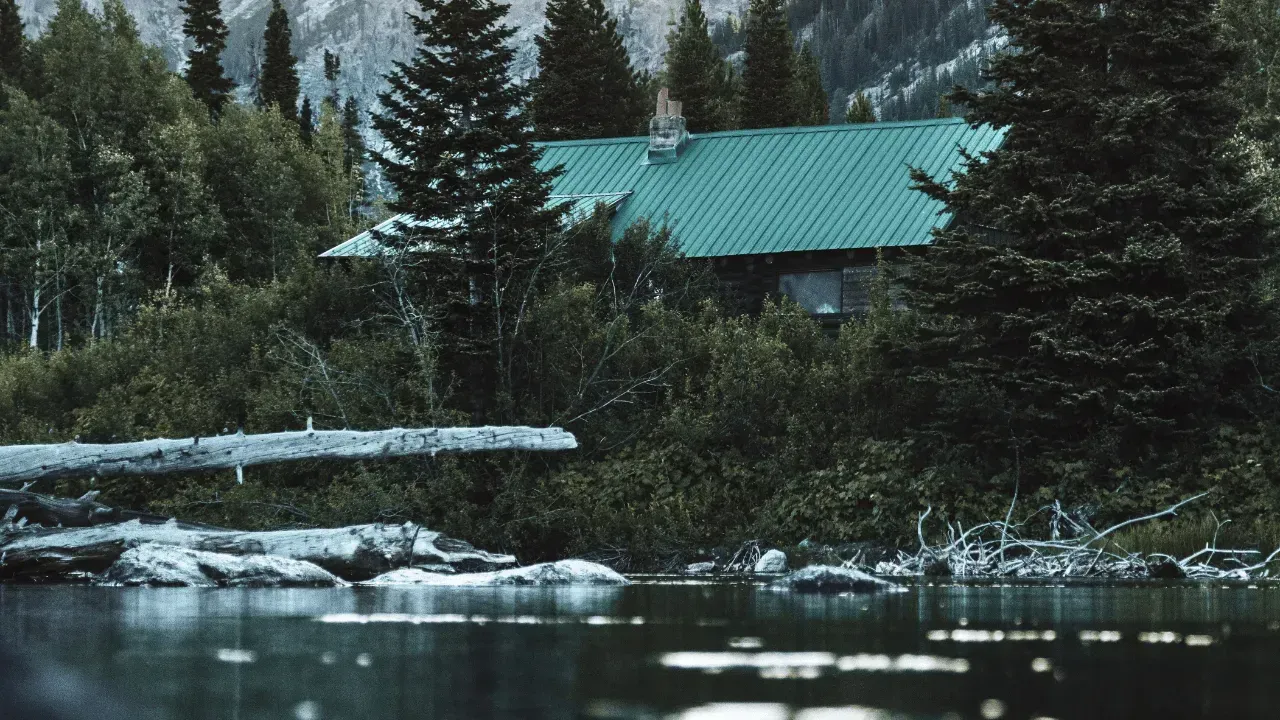Colorado RV Insurance

8:30am - 5:00pm Mon-Fri
We'll Reply in 15min*
Index
Contact Us
Phone
303-421-5123
Location
9035 Wadsworth Parkway
Suite 2730B
Westminster, CO 80021
Do you own or intend to own a motorhome, travel trailer, camper, or another recreational vehicle that you use in Colorado?
If so, you need to make sure that you have the right insurance coverage in place.
RV insurance is similar to other forms of auto insurance, but you can customize the coverage to meet your unique needs. Depending on the insurer, you may have access to a range of different policy add-ons and features such as comprehensive, collision, liability coverage for bodily injury and property damage, uninsured/underinsured motorist protection, personal effects coverage, and roadside assistance.
In addition to the general coverage options mentioned above, you may also find additional coverages that are specific to recreational vehicles, such as total loss replacement coverage, vacation liability protection, and emergency expenses. It’s important to understand what each of these coverages provides so you can determine which ones are important for your situation.
3R Insurance Agency is a trusted provider of RV insurance policies in Colorado. We offer customized coverage solutions that will provide you with peace of mind while you’re living and traveling in your RV. Our team is knowledgeable and experienced, so you can trust us to help you find the right policy that meets your requirements and budget.
Here are the benefits of working with us for your RV insurance needs:
- Comprehensive coverage options
- Affordable premium rates
- Flexible payment plans
- Access to trusted providers
- Friendly and knowledgeable customer service teams
- Customized RV insurance solutions
- Fast and easy online process
- Comprehensive claims process
- Access to a range of discounts
- Ongoing customer support and guidance.
Let us help you find the right RV insurance in Colorado. Contact us today to learn more. We look forward to hearing from you!
Legal Requirements for RV Insurance in Colorado
There are two main classifications of RVs in Colorado: Those that use power for locomotion and those that don’t (the latter includes trailers, campervans, campers, etc).
All vehicles that use power for locomotion must comply with the state’s financial responsibility requirements, which means they must hold a minimum amount of liability insurance. The minimum coverage required is $25,000 of bodily injury protection per person, up to $50,000 for all persons in an accident, as well as $15,000 of property damage coverage.
For vehicles that don’t use power for locomotion, including trailers, campervans, campers, etc., Colorado law doesn’t require you to carry liability insurance. However, it’s still a good idea to have an RV policy in place as it will provide you with additional protection in the event of an accident.
Insurance Requirements for Those Living Full-Time in An RV in Colorado
To be covered in Colorado and other states, including abroad, you need full-time RV insurance if you use your RV as your primary residence or while renovating your house. However, you must own the main vehicle that you're living in to be eligible for this type of coverage.
Full-time RV insurance typically covers personal liability, damage to the vehicle, and living expenses in the event of an accident. It can also provide you with access to roadside assistance, repair services, and medical coverage.
As mentioned above, RV insurance policies provide you with a range of coverage options. These include liability protection for bodily injury and property damage; uninsured/underinsured motorist protection; personal effects coverage (which covers the cost of repairing or replacing any personal belongings within your RV); and roadside assistance.
In addition to these general coverages, there are also additional coverages that are specific to recreational vehicles, such as total loss replacement coverage, vacation liability protection, and emergency expenses.
RV Liability Coverage
As the name suggests, liability coverage pays for third-party expenses if you cause an accident. These include bodily injury and property damage. It can also help cover legal fees and other costs associated with a claim or lawsuit.
- Bodily Injury: Pays for medical expenses of the other driver if you cause an accident.
- Property Damage: Pays for repairs to the other driver’s vehicle or property if you cause an accident.
It is important to keep in mind that your liability coverage will not cover any medical expenses or repairs to your own RV. That is why it is important to have comprehensive coverage as part of your RV insurance policy.
Comprehensive and Collision Coverage
Comprehensive and collision insurance are two of the most important coverages you can have on your RV policy. Collision coverage will pay for repairs or replacement of your RV if it is damaged in an accident. Comprehensive coverage will pay for repairs or replacement to your RV in case of fire, theft, vandalism, wildlife collisions, and other non-collision-related incidents.
Both types of coverage also provide rental reimbursement for a short period of time if your RV is unusable due to damage or a mechanical issue.
Medical Payments Coverage
Medical payments coverage will pay for medical bills related to a motor vehicle accident, regardless of who caused the incident. It will also cover medical expenses if you are injured while in or around your RV. Medical payments coverage can help to ensure you have access to the medical care you need in case of an accident.
Uninsured/Underinsured Motorist Coverage
Uninsured and underinsured motorist coverage will protect you if you are involved in an accident with a driver without insurance or inadequate coverage. This type of coverage will pay for your medical expenses and other costs associated with the accident up to the limits of your policy.
Emergency Expense Coverage
Emergency expense coverage provides you with additional protection in the event of an accident. It will cover costs associated with lodging, meals, and other travel-related expenses if your RV is inoperable due to an accident.
To qualify for emergency expense coverage, your RV must be out of service for at least 24 hours and more than 50 miles from your primary residence. This type of coverage can help ensure you are not stranded in a foreign country or other remote destination.
If you're living in an RV full-time, you don't have to adhere to the 50-mile rule. That means you can still receive coverage for emergency expenses if your RV is inoperable anywhere.
Roadside Assistance
Roadside assistance is a great way to ensure you have access to help whenever you need it. It can provide towing, jump starts, tire changes, fuel delivery, and more. Roadside assistance can help you get back on the road quickly in case of a breakdown or other roadside emergencies. It's important to note that roadside assistance does not substitute physical damage coverage.
Personal Effects Coverage
Personal effects coverage can help cover the cost of items inside your RV in the event of theft, fire, or other covered incidents. This coverage can help reimburse you for items such as clothes, electronics, jewelry, and other personal belongings.
If you are living in your RV full-time, personal effects coverage can help protect all your possessions. It's important to remember that coverage limits may vary depending on the insurer.
How Much is RV Insurance in Colorado?
The cost of RV insurance in Colorado will vary depending on several factors, including the type and age of your RV, your driving record, the amount of coverage you choose, and the limits you select.
- Type and age of the RV: Older RVs may require more expensive coverage as they depreciate in value over time.
- Driving record: You may qualify for lower rates if you have a good driving record.
- Amount and type of coverage: The amount and type of coverage you choose will affect the cost of your policy.
- Limits: Higher coverage limits will result in higher premiums, so it's important to select a limit that is appropriate for your needs.
The average cost of RV insurance in Colorado can range from $150 to $500 per year, depending on the factors mentioned above. It's important to compare quotes from multiple insurers to find the best coverage and price for your needs.
Ways to Get the Most Out of Your Colorado RV Insurance
- Look for discounts: Many insurers will offer discounts for certain types of vehicles, such as RVs, or for having a good driving record.
- Increase your deductibles: Increasing your deductible can help lower your premiums, as you will be responsible for a greater portion of the cost of repairs.
- Ask about bundled policies: It may be cheaper to bundle your RV insurance with your auto, home, or other type of insurance.
- Look for special discounts: You may be eligible for special discounts if you are a member of an organization or have a good credit score.
- Shop around: Don't be afraid to shop around for the best coverage and price for your needs.
- Consider roadside assistance: If you're often on the road, consider adding roadside assistance to your RV insurance policy. This can help cover costs associated with towing, fuel delivery, and more.
Compare Colorado RV Insurance Quotes Today!
3R Insurance Agency is here to help you find the best coverage and price for your Colorado RV insurance needs. We work with the top insurers in the state, so we can provide you with multiple quotes to compare.
Call us today for a free quote or fill out our online form for more information. Our experienced agents are here to answer your questions and help you find the coverage that's right for you.
Our Clients Say It Best
REQUEST A QUOTE
Get a RV insurance quote online today!
RV Insurance FAQs
Got a question about RV Insurance in Colorado? We’re here to help.




